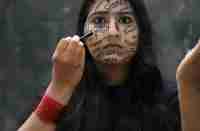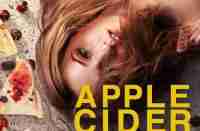2023 Percy French Festival – an informative and engaging experience
Last week, I had the opportunity to attend this year’s Percy French Festival, which was running for its 15th year on the beautiful grounds of Castlecoote House.
The locally-based festival is held annually in celebration of Roscommon native William Percy French, who lived from 1854 to 1920. A ‘Renaissance man’ of sorts, French was, in addition to the often humorous song-writing he is perhaps most associated with, famed for his art, political satire, and writing, and the festival honours this diverse legacy of his by organising an exciting and wide-ranging programme of lectures and entertainment each year.
The range of topics covered by the speakers this year was extensive, with a broad focus on exploring the Ireland of the past, the changing Ireland of today, and indeed what might lie ahead for us as we continue into the future.
Many of the festival’s more historically-focussed talks were centred around early Christian Ireland and its origination, and while these were all certainly very informative discussions in their own right, the one I found myself most interested in placed a spotlight on a much earlier period. The very first speaker, Mike McCarthy, spoke about Connaught’s ancient capital – the Rathcroghan site in Tulsk, which pre-dates Christianity’s arrival to the country by thousands of years. This period of Irish history is, I think, a particularly interesting one to learn about. As McCarthy’s talk highlighted, there is a wealth of ancient history and customs to be explored from this time, and I feel it’s a period with specific significance in the context of our unique cultural identity; it’s the era we can trace our rich expanse of Irish mythology and folklore back to, and the era that gave us the iconic, intricate Celtic artwork and symbolism that remains so heavily associated with Ireland to this day.
Another point of interest for me among the more historically-focussed talks was Professor Luke Gibbons’s lecture, ‘Aliens of the West: Roscommon Women Writers and the Revival’. It was truly illuminating to learn about the lives and careers of these writers whom I had (perhaps ashamedly) not really heard of before – but I suppose that was very much the point of centering a talk around them; women writers throughout history have so often been overlooked and undervalued (both during their time and sometimes even now when we look back on talents in literary history), and this has, as Professor Gibbons pointed out in this case, sometimes led to their works being near impossible to find nowadays. And so it was very interesting to hear about these women’s careers for the first time, and to have the talk highlight their works and the successes they managed to achieve despite facing obstacles their male counterparts didn’t.
With the first stretch of the festival having a focus on the past, it was fitting then that the last day of the festival, Friday, had more of a focus on the future, with technology in particular being a recurring theme throughout the final morning’s talks. One talk focused on the issue of technology and children, and another on artificial intelligence. AI, of course, has gained exponential prominence lately, as AI tools quickly become more widespread and accessible, and as more people begin to worry about what this might lead to. In that regard, it was great to hear from an expert on the topic, Dr Keith Begley, about what AI actually is, how it works, and what we can expect future AI to look like.
The last day of the festival also featured what was no doubt one of the most highly anticipated talks scheduled for the event – that is the one given by journalist, author, and broadcaster, Mary Kenny. Kenny was among the more high profile speakers at the event, being, of course, a famous figure in contemporary Irish life. Her renown comes not just off the back of her reputation as a pioneering journalist (she has been referred to as “the grand dame of Irish journalism”), but also for her significant contributions to second-wave feminism in Ireland. In addition to her writing, which often touches on feminist topics, Kenny was one of the founding members of the Irish Women’s Liberation Movement (and a very influential one at that), and was also among the cohort of prominent second-wave Irish feminists (such as Nell McCafferty and June Levine, etc) who, in 1971, travelled on the so-called ‘contraceptive train’ from Dublin to Belfast to buy condoms while they were still illegal within the Republic – activism which had a landmark role in breaking the “taboo against discussing contraceptive practice”.
On Friday, she spoke about demographic collapse in Ireland, outlining her views on how and why demographics in Ireland are changing, and have changed over the years.
I had the opportunity to speak with Mary for a little while before she delivered her talk. As a feminist, and as a woman deeply cognisant of the fact that if it wasn’t for the work Kenny and other second-wave Irish feminists accomplished I’d have grown up in a much less tolerant and much more unfair and restrictive Ireland, I felt fortunate to meet and speak with her. That said, I feel I must note how in recent years, the views and values I hold have diverged from Kenny’s. As someone who values intersectionality and empathetic inclusivity for all marginalised groups, I consider comments Kenny has made about the trans community in particular to often be unnuanced and intolerant, and very disappointing coming from someone who has long been seen as such a progressive figure. There are a handful of other areas as well where our views differ: for example, certain comments about the pandemic, and some (in my opinion) overly generous characterisations of the Irish Church of the past. All told, while I would be at variance with Mary’s views on some issues, I did value meeting someone who has been so influential for Irish feminism over so many decades, and appreciated her taking the time to talk to me about journalism and social issues during her visit to Castlecoote.
Trans issues actually also came up during Friday’s panel discussion – when discussing culture wars – and I thought it was a pity that there wasn’t any vocal supporters of the community speaking on the panel. I felt one speaker in particular was needlessly insensitive and mean-spirited in his brief comments about the community (whatever your opinions, trans people are people and we should treat all people with at least some degree of decency and respect when we talk about them), and so it was uncomfortable to see these sentiments go unchecked.
I did not expect to agree with every speaker on every topic raised (and I certainly didn’t), nor would I have really wanted to. A platform like the one this festival offers represents a chance to hear diverse viewpoints, evaluate your own thinking, and have in-depth discussions with individuals rather than writing them off as people you disagree with. As such, in certain areas, and at certain points in the panel discussion in particular, I thought it would’ve been useful to have a wider range of opinions.
In general though, I must say this panel discussion was an event highlight. Audience engagement was very high, and the lively discussions and debates were extremely interesting to observe. Similarly, I thought the Q&A segments following each talk were especially engaging and informative.
There were many other standouts from the festival that I haven’t even alluded to – for example, Alf Monaghan’s talk linking the early Irish Church’s roots to the Egyptian Copts, a topic I knew absolutely nothing about beforehand and one I quite honestly hadn’t expected to find as interesting as it ended up being. Also SC Brendan Kilty’s intriguingly named ‘101 Reasons Not To Execute Someone’ was another talk I found to be thoroughly thought-provoking and engaging (it dealt with the ethical implications of the death penalty).
I must also give mention to the musical entertainment provided on Thursday and Friday afternoons. The talented Cathy Jordan and Donogh Hennessy unsurprisingly delivered a brilliant performance on Thursday, playing a set of traditional songs that of course included some penned by French himself. And the final festival event rounded things off an a real high note, with another wonderful performance by the very talented group of young musicians that is Col Ceathair.
It truly was a jam-packed festival, and I really enjoyed the whole experience. The entire event was very well run by the organisers and very well presented, the grounds of Castlecoote House being a beautiful backdrop for discussions over the three days. While there, I also met a few regular readers of this column I’d never spoken to before, which is not something I often get the chance to do, and I greatly valued talking to them and hearing their opinions and perspectives.
It was a very successful, informative, and engaging event, and I am grateful to have had the opportunity to attend all three days of the festival. It is so great to have events such as these on our doorstep, and I am looking forward to hopefully attending future festivals.






